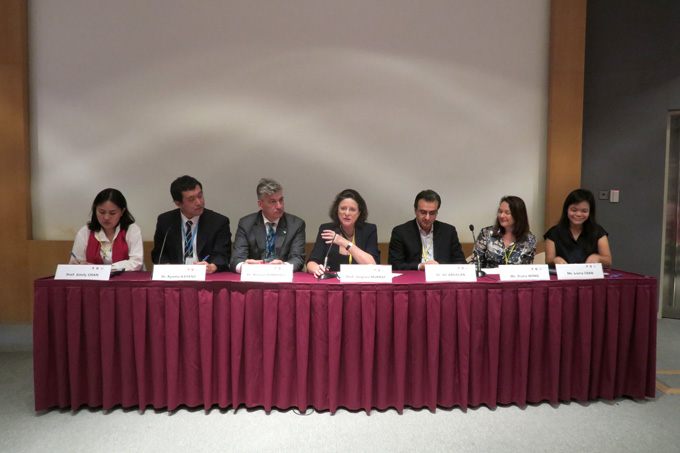CCOUC organised an international workshop entitled “Emergency and Disaster Risk Management for Health: New Frontiers for Public Health Science” on 23 September 2016 to examine the research landscape of Health Emergency and Disaster Risk Management (H-EDRM) in light of the Sendai Framework for Disaster Risk Reduction. The workshop was attended by over 70 participants, and featured experts from six countries who reviewed emerging trends, identified gaps and provided recommendations for the strategic development of the H-EDRM research field.
Health Emergency and Disaster Risk Management for Health (H-EDRM) is a unique field of study that captures the intersection between emergency and disaster medicine, health systems strengthening, disaster risk reduction and humanitarian response. The importance of health in the context of emergencies and disasters is gaining increasing recognition: the human health impact (mortality, morbidity and other impacts) is precisely what makes hazards so devastating. This focus has been reflected through the post-2015 development frameworks (Sustainable Development Goals, Sendai Framework for Disaster Risk Reduction, Paris Agreements and New Urban Agenda), where health is a cross-cutting theme. Particularly in the Sendai Framework, health is recognised as both an outcome and a goal of disaster risk reduction (DRR). There is increasing recognition not just for health stakeholders to be proactive in mainstreaming DRR within their work, but to build DRR policies and practices upon scientific and evidence-based strategies.
Dr Ali Ardalan, Associate Professor and Chair, Disaster & Emergency Health Academy at the Tehran University of Medical Sciences in Iran opened the workshop with an overview about H-EDRM and the importance of a multi-disciplinary approach to address H-EDRM. Prof Virginia Murray, Consultant in Global Disaster Risk Reduction at Public Health England followed by locating health within the broader context of the Sendai Framework, which was adopted by 187 UN Member States in Sendai, Japan in March 2015. Dr Alistair Humphrey, Medical Officer of Health (Canterbury) of the Canterbury District Health Board in New Zealand identified the importance of the public health approach in developing population-wide strategies to build community health resilience to disasters, and highlighted the importance of good communication and learning from previous experiences. Dr Ryoma Kayano, Technical Officer at the WHO Kobe Centre, stated that 95% of H-EDRM research focuses the ‘acute’ or immediate ‘response’ phase of the disaster, raising the need for scholars to do studies focusing on other phases of the disaster management cycle. Finally, Prof Emily Chan, Professor and Director of CCOUC, concluded by identifying some challenges, gaps and opportunities for the H-EDRM research field. The presentations were followed by a lively panel discussion amongst speakers and the audience. In particular, the need to share knowledge and develop collaborations beyond disciplines and sectors was highlighted.
